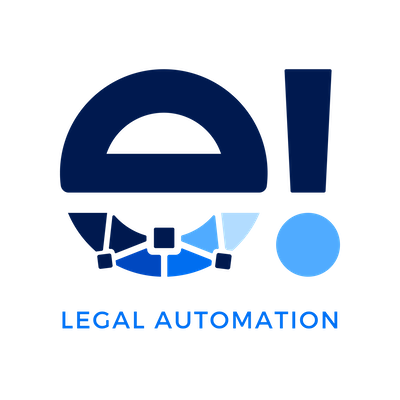Billable hours are important because the success and profitability of a law firm often come down to them. In our previous Blogpost “Top Legaltech Trends to Observe In 2024”, we highlighted that in 2024, the legal industry might move away from the traditional billable hours to alternative fee arrangements. This signals a major shift towards cost efficiency and value.
The impact of Artificial Intelligence (AI) and legal tech on law firms’ management of pricing and billable hours represents a significant evolution in the legal industry. As technology continues to advance, law firms are increasingly adopting innovative tools to enhance efficiency, reduce costs, and provide more value to clients. This shift is notably reflected in how firms approach billing and fee arrangements, moving away from traditional billable hours toward fixed fee arrangements.
However, the law firms utilizing modern technology and AI for the benefit of efficiency are facing a dilemma. They wonder if the reduced hours to complete a project or the shift from hourly billing to fixed fees on a project basis are detrimental to the company’s revenue and profitability.
Why law firms track billable hours
Tracking billable hours remains a cornerstone of law firm operations for several compelling reasons. Primarily, it directly links the effort of attorneys to the firm’s revenue. This practice ensures clients pay for the actual work done on their cases. Moreover, it establishes transparency, allowing clients to see where and how the firm allocates its time and resources. Billable hours also facilitate better project management. Firms can identify which cases demand more resources and adjust their strategies accordingly. This efficiency leads to optimized allocation of tasks and prevents overburdening any single attorney.
Moreover, tracking billable hours plays a crucial role in evaluating attorney performance. It offers a clear, quantitative measure of an attorney’s productivity and contribution to the firm. This data becomes invaluable during performance reviews and when making decisions about promotions or bonuses. Additionally, it aids in setting realistic billable targets for attorneys, fostering a culture of accountability and motivation within the firm.
Another significant reason is financial forecasting and budgeting. Accurate records of billable hours help law firms predict future revenues and manage cash flow more effectively. This foresight is essential for making informed decisions about investments, expansions, or downsizing. It also allows for precise billing, minimizing disputes over fees and fostering trust between the firm and its clients.
However, tracking billable hours is not without its critics. Some argue it incentivizes quantity over quality, potentially compromising the integrity of legal work. Despite this, the practice remains widespread, reflecting its embedded role in law firm economics and management.
Old methods belong to the past
Many law firms use outdated models, focusing on billable hours for revenue. This requires hiring more staff, which results in increasing costs and reducing profitability and efficiency. A Thomson Reuters report reveals law firms spend 46% of revenue on staff salaries and benefits. On average, lawyers spend 124 hours monthly on billable work. This is while the rest of their time was spent on administrative tasks or in a better scenario on business development.
Resistance to change and lack of information about the latest tech trends are common cases in the legal industry and these are taking many opportunities away from the law firms who in turn can adopt AI to their advantage.

Billable hours for law firms in the AI era
In the legal industry, the introduction of AI presents a complex challenge. Law firms traditionally rely on billable hours. AI’s efficiency could reduce these hours. This seems negative at first glance. Yet, AI’s era could revolutionize billing methods.
The shift towards fixed fees is not a new movement, however, AI has accelerated this transition. Clients often prefer certainty in legal expenses and the use of technology enables law firms to offer predictable pricing and therefore enhance client satisfaction.
Moreover, AI’s adoption improves a firm’s competitiveness. Automation lets lawyers focus on tasks technology can’t replicate or work fewer hours. They can then focus on complex, higher-value work and this shift enhances the quality of legal services. Efficiency gains allow firms to handle more cases simultaneously, which in turn increases overall revenue, despite reduced billable hours.
AI also enables data-driven decision-making. Law firms can analyze historical data to set accurate fixed fees. This ensures profitability while remaining competitive. Furthermore, AI can identify new revenue opportunities, For instance, under-served areas needing legal services.
In essence, AI’s impact on billing is profound
Companies should view legal tech research and implementation as future investments, not just as opportunity costs. Law firms embracing AI and fixed fees who rethink the revenue models strategically could gain a market edge by offering transparency, efficiency, and value. This attracts clients in a competitive landscape and consequently, short-term billable hours lost are outweighed by long-term benefits.
AI’s introduction in law firms is not merely a challenge, but it is an opportunity to innovate billing practices. Transitioning to fixed fees benefits clients and firms alike. It represents a shift towards more sustainable, client-focused legal services.
Generative AI is seen as accelerating the commodification of basic legal services, challenging traditional billing practices. As fixed fees get more popular, many law firms no longer apply billable hours for low-level tasks.
Improved billable hours by leveraging Legal technologies and AI
Leveraging legal technologies and AI significantly enhances the efficiency of tracking and improving billable hours in law firms. These innovative tools revolutionize traditional practices, offering precision, speed, and insights that were previously unattainable.
First, AI-driven time-tracking software automates the monitoring of billable hours, reducing the need for manual entry. This automation not only saves time but also increases accuracy, ensuring that firms capture every billable moment.
Furthermore, AI enhances task categorization, assigning billable hours to the correct cases without human error. This precision ensures clients receive transparent and accurate billing, enhancing trust.
AI and legal tech also streamline administrative tasks, freeing lawyers to focus more on billable work. Document automation, for example, significantly cuts down the time spent on drafting standard legal documents. AI-powered research tools drastically reduce the time lawyers spend on legal research. These tools provide quick access to relevant case law, statutes, and legal precedents. This efficiency translates directly into more available time for client-focused, billable activities.
Predictive analytics, another benefit of AI, allows firms to forecast case outcomes and allocate resources more effectively. This foresight ensures that firms focus their efforts on high-value tasks, optimizing the distribution of billable hours.
Moreover, AI-driven tools offer detailed insights into billing patterns, identifying areas for efficiency improvements. Firms can analyze which activities consume disproportionate time and adjust their processes or pricing models accordingly.
Legal tech platforms facilitate better communication and collaboration, crucial for maximizing billable hours in complex cases. These platforms streamline information sharing and project management, ensuring that team efforts align seamlessly with billing objectives.
In addition to improving efficiency, legal tech, and AI help maintain work-life balance for attorneys. By automating routine tasks, lawyers can achieve their billable hour targets without excessive overtime, contributing to better job satisfaction and retention rates. .
Final Thoughts
Before generative AI, machine learning already reduced costs for tasks like document review. Now, it’s expected to further this trend by automation of tasks like document drafting, traditionally done by junior attorneys, without significantly reducing billable hours.
Whether AI can match lawyers’ expertise in high-level legal work and the bulk of billable hours remains a topic of debate. Although generative AI is likely to evolve and become more tailored to legal tasks, it could affect billable hours and automate some aspects of legal practice. Law firms are adopting generative AI quickly, despite skepticism, suggesting a significant potential for transforming billing models and improving efficiency. However, the long-term effects on the legal industry and the billable hour are still to be fully understood.






